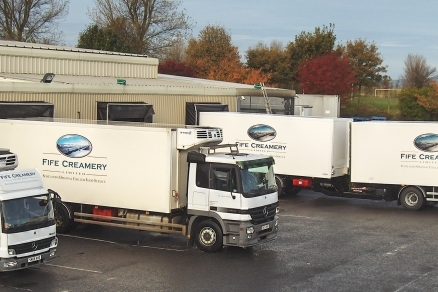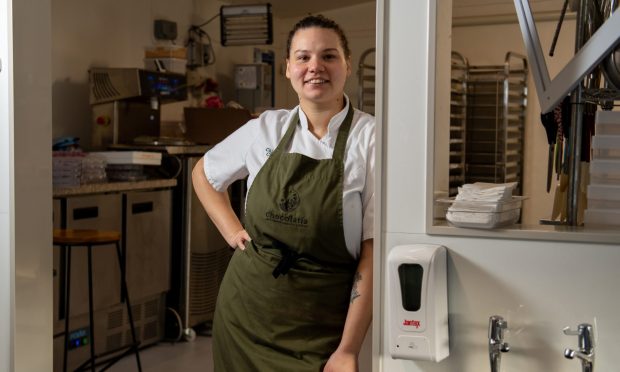Fife Creamery, the leading Scottish supplier of speciality chilled foods, reported a “very successful” 2015.
Turnover was up 5% at £24.8 million and pre-tax profit rose 7.75% to £1.085m at the Kirkcaldy-based firm.
Managing director David Simpson said the directors expect the performance in the 12 months to September 2015 to be maintained in the next financial year.
The directors considered the financial position of the family firm in Randolph Place to be satisfactory, with assets exceeding liabilities by almost £350,000.
The year had seen the company invest just over £1 million in a warehouse extension and freezer using cash reserves and a further £250,000 bank loan.
“This has significantly increased the warehousing capacity and customer offering,” he added.
Formed 59 years ago by John Simpson, David’s grandfather, Fife Creamery supplies the Scottish market with an extensive range of chilled foods.
With 131 employees and 25 temperature-controlled vehicles, it has grown into one of the U.K.’s major stockists of chilled foods supplied from its £2 million 30,000 square feet custom-built depot.
It has over 2,500 chilled food lines held in readiness for next day deliveries, and a supply chain link to manufacturers working at the highest level in the food industry.
Its customers include restaurants and hotels, sandwich and takeaway vendors, contract caterers, the NHS, further education colleges, visitor attractions, travel and hospitality outlets, coffee shops, delicatessens and convenience stores.
In 2013 it joined forces with Scotmid Food – Scotland’s largest independent co-operative with 194 stores – to bring more local produce to shoppers in a move that created 12 new posts
The Scotmid deal introduced the chain’s shoppers to products from Fife including DipNation dips, which are made on a farm near Leven.
The 2015 report added that HMRC is inquiring into the Employee Benefit Trust (EBT) set up by Fife Creamery in 2008.
The directors have formed the view, after taking advice, that legal precedent is in its favour and it will be concluded that no additional tax liabilities will arise in respect of EBT contributions
An EBT can be established in the UK or offshore by a company to hold cash and other assets, often shares, to provide benefit to employees and their families for the purpose of attracting and retaining quality staff.










